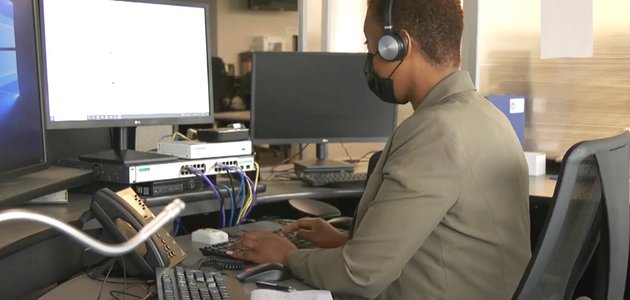
The 9-1-1 Crisis Call Diversion Pilot Program collaboration involving Toronto Police Service (TPS) and the Gerstein Crisis Centre (GCC) has been expanded to operate across all Divisions for an additional year, 24 hours, seven days a week, as of October 24, 2022.
Since October 4, 2021, a GCC crisis worker has been co-located in the TPS Communications Call Centre, serving the pilot area of 14, 51 and 52 Divisions.
Between the launch date and September 30, 2022, the pilot project successfully diverted 610 mental health-related calls for service to the crisis worker co-located in the TPS 9-1-1 Communications Call Centre that police did not have to attend.
Crisis workers also co-responded with police to 368 events in the pilot area. In the co-response role, crisis workers provide mental health support over the phone to the caller with the focus of de-escalating the caller before police arrive on the scene.
“The Toronto Police Service continues to support alternative models of mental health crisis response and we are pleased to see this valuable partnership with Gerstein Crisis Centre expanded. We saw the value of the initial 9-1-1 Crisis Call Diversion Pilot Project and TPS welcomes the opportunity to expand the offering across the Service,” said Chief of Police James Ramer. “We will continue to collaborate with the City of Toronto on the Toronto Community Crisis Service and other community agencies, as we explore additional non-police alternative responses to help us better support those in crisis in Toronto.”
GCC Executive Director Susan Davis said her organization welcomes the expansion of the 9-1-1 Crisis Call Diversion Pilot Project with TPS as it continues to build purpose-built infrastructure for mental health support across Toronto.
“Our communities are facing complex issues and solutions that will require innovative and collaborative models that work across sectors to create a strong support network for all Torontonians connecting people to the right supports when they need them and wherever they reach out,” she added.
A year ago, TPS and the GCC launched the 9-1-1 Crisis Call Diversion Pilot Project with non-emergent mental health needs.
Listening to input from the mental health community in Toronto to reform policing response, the pilot provided a platform for TPS and GCC responders working collaboratively, but distinctly, to assist in the diversion of non-emergency mental health related calls away from a police response.
TPS call-takers evaluate incoming calls for diversion based on specific non-imminent risk criteria and transfer calls to the GCC crisis worker, who are co-located in the TPS Communications Call Centre.
The co-located crisis workers are also connected to the City’s Toronto Community Crisis Service (TCCS) teams and have the option to dispatch a non-police team to respond.
Last March, the TCCS was launched to provide a community-led solution to respond to crisis calls and wellness checks.
The program allows 9-1-1 calls to be diverted to 2-1-1 Toronto with the consent of the caller where a City of Toronto dispatcher handles the call and has the ability to dispatch a mobile TCCS team to speak to the caller.
It augments the longstanding Mobile Crisis Intervention Teams (MCIT) and Gerstein program in place to help people in a mental health crisis.
Over 33,000 mental health-related calls are made to police each year.
